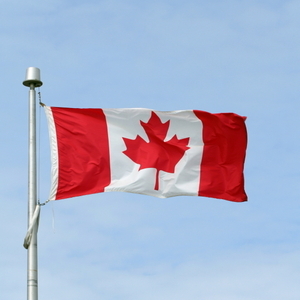Canada announces plans for national low-carbon fuel standard

November 28, 2016
BY Erin Krueger
On Nov. 25, the government of Canada announced plans to develop a low-carbon fuel standard that would require reductions in the carbon footprint of fuels supplied in the nation based on lifecycle analysis.
A statement issued by the government notes a clean fuel standard would be flexible and would promote the use of clean technology and lower carbon fuels. It would also promote alternatives, such as electricity, biogas, hydrogen and renewable fuels. The primary objective of the program is to reduce greenhouse gas (GHG) emissions by 30 megatons per year by 2030. The statement indicated this level of reduction would provide a significant contribution towards achieving Canada’s commitment to reduce emissions 30 percent below 2005 levels by 2030 and is equivalent to removing more than 7 million vehicles from the road for a year.
According to the Canadian government, the proposed clean fuel standard would feature a performance-based approach by setting requirements to reduce the lifecycle carbon intensities of fuels supplied in a given year, based on lifecycle analysis. Unlike renewable fuel mandates, the approach would not prescribe particular low-carbon fuels or technology that must be use. Rather, it focuses on emissions reduction.
Advertisement
Advertisement
A statement published by the Canadian government also states the standard is expected to encourage the use of cleaner fuels in a variety of sectors of the economy, including fuels used in transportation, homes and buildings and those that power industry. It is expected to address a broad suite of fuels, including liquid fuels, gaseous fuels and solid fuels.
The government also noted the standard will be designed to provide flexibility to fuel suppliers, and said it could include provisions to take into account regional differences, similar to those under existing renewable fuel regulations.
The standard is also described as complementing carbon pricing by ensuring consumers have access to a suite of lower-carbon fuels. By specifically addressing the carbon-footprint of fuels, the government said the clean fuel standard is expected to drive innovation and create jobs and opportunities across several sectors, including transportation, agriculture and clean-technology.
Regarding crude oil, the government said the approach used in the standard would not differentiate between crude oil types produced in or imported into Canada.
Advertisement
Advertisement
Canada currently has several regulatory programs in place that encourage the use of biofuels. The government noted that the current average renewable fuel blending in the nation’s fuels is more than 7 percent ethanol in gasoline, surpassing the 5 percent level set out in the country’s renewable fuel regulations. In addition, Canada’s diesel currently contains approximately 2 percent renewable content, meeting the regulatory level.
The provinces of Ontario and Saskatchewan have had renewable fuel requirements in place since 2007, with other provinces following their lead. Alberta and Ontario also currently require renewable fuels meet a specific GHG performance standard, while British Colombia is implementing low-carbon fuel standards that require a reduction of lifecycle GHG emission intensity of the fuels supplied in a given year.
According to the government of Canada, it will consult with provinces, territories, indigenous peoples, industries and non-governmental organizations to develop its proposed clean fuel standard. Environment and Climate Change Canada is expected to publish a discussion paper on the program in February to help guide consultations consisting of meetings, workshops and technical working groups.
Related Stories
Broco Energy on July 17 announced a new partnership with the Massachusetts Port Authority (Massport) to deliver and transition Massport's fuel tanks to renewable diesel across its various facilities.
Shell Aviation, Accenture, and Amex GBT on July 10 announced Avelia is in the process of evolving to an industry solution with independent data hosting and a multi-supplier model helping users access the GHG benefits of SAF.
The U.S EPA on July 17 released data showing more than 1.9 billion RINs were generated under the RFS during June, down 11% when compared to the same month of last year. Total RIN generation for the first half of 2025 reached 11.17 billion.
The U.S. EPA on July 17 published updated small refinery exemption (SRE) data, reporting that six new SRE petitions have been filed under the RFS during the past month. A total of 195 SRE petitions are now pending.
European biodiesel producer Greenergy on July 10 confirmed plans to shut down its biodiesel plant in Immingham, Lincolnshire, U.K. The company temporarily suspended operations at the facility earlier this year.
Upcoming Events










